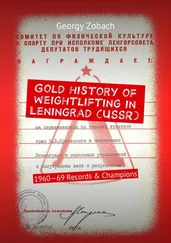Fanny Kemble - Records of a Girlhood
Здесь есть возможность читать онлайн «Fanny Kemble - Records of a Girlhood» — ознакомительный отрывок электронной книги совершенно бесплатно, а после прочтения отрывка купить полную версию. В некоторых случаях можно слушать аудио, скачать через торрент в формате fb2 и присутствует краткое содержание. Жанр: foreign_prose, foreign_antique, на английском языке. Описание произведения, (предисловие) а так же отзывы посетителей доступны на портале библиотеки ЛибКат.
- Название:Records of a Girlhood
- Автор:
- Жанр:
- Год:неизвестен
- ISBN:нет данных
- Рейтинг книги:4 / 5. Голосов: 1
-
Избранное:Добавить в избранное
- Отзывы:
-
Ваша оценка:
- 80
- 1
- 2
- 3
- 4
- 5
Records of a Girlhood: краткое содержание, описание и аннотация
Предлагаем к чтению аннотацию, описание, краткое содержание или предисловие (зависит от того, что написал сам автор книги «Records of a Girlhood»). Если вы не нашли необходимую информацию о книге — напишите в комментариях, мы постараемся отыскать её.
Records of a Girlhood — читать онлайн ознакомительный отрывок
Ниже представлен текст книги, разбитый по страницам. Система сохранения места последней прочитанной страницы, позволяет с удобством читать онлайн бесплатно книгу «Records of a Girlhood», без необходимости каждый раз заново искать на чём Вы остановились. Поставьте закладку, и сможете в любой момент перейти на страницу, на которой закончили чтение.
Интервал:
Закладка:
Among the principal interests of my London life at this time was the production at our theater of Weber's opera, "Der Freyschütz." Few operas, I believe, have had a wider or more prolonged popularity; none certainly within my recollection ever had any thing approaching it. Several causes conduced to this effect. The simple pathos of the love story, and the supernatural element so well blended with it, which gave such unusual scope to the stage effects of scenery, etc., were two obvious reasons for its success.
From the inimitably gay and dramatic laughing chorus and waltz of the first scene to the divine melody in which the heroine expresses her unshaken faith in Heaven, immediately before her lover's triumph closes the piece, the whole opera is a series of exquisite conceptions, hardly one of which does not contain some theme or passage calculated to catch the dullest and slowest ear and fix itself on the least retentive memory; and though the huntsman's and bridesmaid's choruses, of course, first attained and longest retained a street-organ popularity, there is not a single air, duet, concerted piece, or chorus, from which extracts were not seized on and carried away by the least musical memories. So that the advertisement of a German gentleman for a valet, who to other necessary qualifications was to add the indispensable one of not being able to whistle a note of "Der Freyschütz," appeared a not unnatural result of the universal furor for this music.
We went to hear it until we literally knew it by heart, and such was my enthusiasm for it that I contrived to get up a romantic passion for the great composer, of whom I procured a hideous little engraving (very ugly he was, and very ugly was his "counterfeit presentment," with high cheek-bones, long hooked nose, and spectacles), which, folded up in a small square and sewed into a black silk case, I carried like an amulet round my neck until I completely wore it out, which was soon after poor Weber's death.
CHAPTER VI
The immense success of "Der Freyschütz," and the important assistance it brought to the funds of the theater, induced my father to propose to Weber to compose an opera expressly for Covent Garden. The proposal met with ready acceptance, and the chivalric fairy tale of Wieland's "Oberon" was selected for the subject, and was very gracefully and poetically treated by Mr. Planché, to whom the literary part of the work—the libretto—was confided, and who certainly bestowed as much pains on the versification of his lyrical drama as if it was not destined to be a completely secondary object to the music in the public estimation. Weber himself, however, was by no means a man to disregard the tenor of the words and characters he was to associate with his music, and was greatly charmed with his English coadjutor's operatic version of Wieland's fairy epic. He was invited to come over to London and himself superintend the production of his new work.
Representations of "Der Freyschütz" were given on his arrival, and night after night the theater was crowded to see him preside in the orchestra and conduct his own fine opera; and the enthusiasm of the London public rose to fever height. Weber took up his abode at the house of Sir George Smart, the leader of the Covent Garden orchestra, and our excellent old friend—a capital musician and very worthy man. He was appointed organist to King William IV., and for many years directed those admirable performances of classical music called the Ancient Concerts.
He was a man of very considerable musical knowledge, and had a peculiar talent for teaching and accompanying the vocal compositions of Handel. During the whole of my father's management of Covent Garden, he had the supervision of the musical representations and conducted the orchestra, and he was principally instrumental in bringing out Weber's fine operas of "Der Freyschütz" and "Oberon." Weber continued to reside in Sir George Smart's house during the whole of his stay in London, and died there soon after the production of his "Oberon." Sir George Smart was the first person who presented Mendelssohn to me. I had been acting Juliet one night, and at the end of the play was raised from the stage by my kind old friend, who had been in the orchestra during the performance, with the great composer, then a young man of nineteen, on his first visit to England. He brought letters of introduction to my father, and made his first acquaintance with me in my grave-clothes. Besides my esteem and regard for Sir George's more valuable qualities, I had a particular liking for some excellent snuff he always had, and used constantly to borrow his snuff-box to sniff at it like a perfume, not having attained a sufficiently mature age to venture upon "pinches;" and a snuff-taking Juliet being inadmissible, I used to wish myself at the elderly lady age when the indulgence might be becoming: but before I attained it, snuff was no longer taken by ladies of any age, and now, I think, it is used by very few men.
In a letter written to me by my mother, during my temporary absence from London, just after the accession of King William IV., I find the following passage with reference to Sir George Smart:
"London is all alive; the new king seems idolized by the people, and he appears no less pleased with them; perhaps Sir George is amongst the happiest of his subjects. His Majesty swears that nothing shall be encouraged but native talent , and our friend is to get up a concert at the Duke of Sussex's, where the royal family are all to dine, at which none but English singers are to perform. Sir George dined with me on Monday, and I perceive he has already arranged in his thoughts all he proposes to tell the queen about you on this occasion. It is evident he flatters himself that he is to be deep in her Majesty's confidence."
Sir George Smart and his distinguished guest, Weber, were constantly at our house while the rehearsals of "Oberon" went forward. The first day they dined together at my father's was an event for me, especially as Sir George, on my entering the room, took me by the hand, and drawing me toward Weber, assured him that I and all the young girls in England were over head and ears in love with him. With my guilty satchel round my neck, I felt ready to sink with confusion, and stammered out something about Herr von Weber's beautiful music, to which, with a comical, melancholy smile, he replied, "Ah, my music! it is always my music, but never myself!"
Baron Carl Maria von Weber was a noble-born Saxon German, whose very irregular youth could hardly, one would suppose, have left him leisure to cultivate or exercise his extraordinary musical genius; but though he spent much of his early life in wild dissipation, and died in middle age, he left to the world a mass of compositions of the greatest variety and beauty, and a name which ranks among the most eminent in his pre-eminently musical country. He was a little thin man, lame of one foot, and with a slight tendency to a deformed shoulder. His hollow, sallow, sickly face bore an expression of habitual suffering and ill health, and the long, hooked nose, salient cheek-bones, light, prominent eyes, and spectacles were certainly done no more than justice to in the unattractive representation of my cherished portrait of him.
He had the air and manner of a well-born and well-bred man of the world, a gentle voice, and a slow utterance in English, which he spoke but indifferently and with a strong accent; he generally conversed with my father and mother in French. One of the first visits he paid to Covent Garden was in my mother's box, to hear Miss Paton and Braham (his prima donna and tenor) in an oratorio. He was enthusiastic in his admiration of Braham's fine performance of one of Handel's magnificent songs ("Deeper and deeper still," I think), but when, in the second part of the concert, which consisted of a selection of secular music, the great singer threw the house into ecstasies, and was tumultuously encored in the pseudo-Scotch ballad of "Blue Bonnets over the Border," he was extremely disgusted, and exclaimed two or three times, "Ah, that is beast !" (Ah, cela est bête!) to our infinite diversion. Much more aggravating proof was poor Weber destined to have of the famous tenor's love of mere popularity in his art, and strange enough, no doubt, to the great German composer was the thirst for ignorant applause which induced Braham to reject the beautiful, tender, and majestic opening air Weber had written for him in the character of Huon, and insist upon the writing of a battle-piece which might split the ears of the groundlings and the gods, and furnish him an opportunity for making some of the startling effects of lyrical declamation which never failed to carry his audience by storm.
Читать дальшеИнтервал:
Закладка:
Похожие книги на «Records of a Girlhood»
Представляем Вашему вниманию похожие книги на «Records of a Girlhood» списком для выбора. Мы отобрали схожую по названию и смыслу литературу в надежде предоставить читателям больше вариантов отыскать новые, интересные, ещё непрочитанные произведения.
Обсуждение, отзывы о книге «Records of a Girlhood» и просто собственные мнения читателей. Оставьте ваши комментарии, напишите, что Вы думаете о произведении, его смысле или главных героях. Укажите что конкретно понравилось, а что нет, и почему Вы так считаете.












